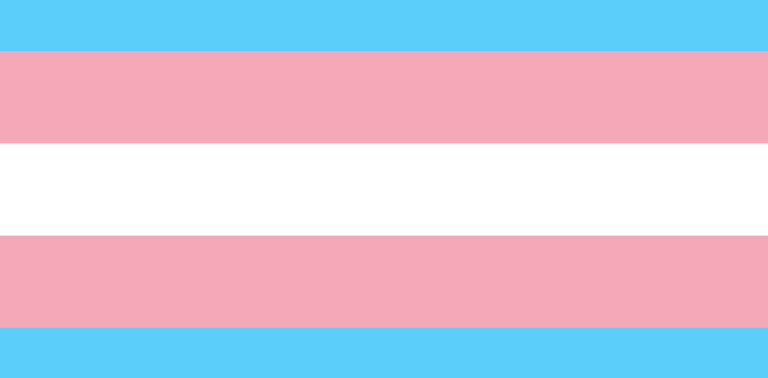
As the 2020 StackOverflow survey pointed out, technology companies – and many open source communities – have a diversity problem. While the majority of developers currently come from a white, male background, the momentum is shifting to create more inclusive, diverse communities.
Research shows that diverse open source projects are more productive and make better decisions. This starts with creating teams that have a greater representation of gender, race, socioeconomic standings, ethnic backgrounds, and the like.
Many open source communities are recognizing the need for new initiatives and a cohesive focus to tackle the lack of diversity in their projects. I predict that in 2021, building off the momentum of this past year’s focus on social inequality and steps made by open source-minded companies and foundations, open source communities will continue to increase the diversity of their communities so that it becomes the rule and not the exception.
Diverse disciplines produce innovative tech
When people from different disciplines and backgrounds collaborate, innovation occurs. One of my favorite books, The Medici Effect, presents compelling research about how innovation occurs at the intersection of disciplines and industries. I’ve noticed this cross-discipline diversity happening in various industries and projects, and I’m excited about the innovation that will follow.
Examples include:
- In quantum computing, physicists are partnering with software engineers to create a whole new field of computing. At IBM, for example, our open source Qiskit engineers worked with chemists to develop new chemistry modules that extend quantum computing into the chemistry realm.
- In AI, neuroscience researchers who study the brain are collaborating with data scientists and programmers to create more effective machine learning models, many of which are open sourced for future development.
- And even in space, developers in IBM’s Space Tech Hub are collaborating with astrophysicists and aerospace engineers to understand the anthropogenic space objects in lower earth orbit and using AI to predict orbits and conjunctions in orbit. The result is two open source projects that continue to engage developers, astrophysicists, and aerospace engineers in innovations for the final frontier.
As open source becomes more mainstream and projects actively work to grow the diversity of their communities, my hope is that that increased diversity of culture, thought, and even discipline will bring unique perspectives and experiences that will further increase the rate and pace of innovation.
Industry leadership advancing open source diversity
As noted, communities need to actively work to remove barriers to increasing diversity. Here are a few examples of such efforts. Some of these are by IBM — which I of course have the most insight into — but this goes far beyond us. I believe we need to see more of these everywhere!
In October 2020, IBM announced Call for Code for Racial Justice, which empowers individual developers, innovators, and social justice advocates to leverage open source technology to address racial injustice and inequality.
In October 2020, the Linux Foundation announced a new Software Developer Diversity and Inclusion project to draw on science and research to deliver resources and best practices that increase diversity and inclusion in software engineering.
Following the age-old tenet that “you cannot manage what you don’t measure”, the Hyperledger Diversity, Civility, and Inclusion (DCI) Working Group is focused on “measuring and improving the health of our open source community.”
In the OpenJS community, the Node+JS diversity scholarship program provides support to those from traditionally underrepresented or marginalized groups in the technology or open source communities who may not otherwise have the opportunity to attend the event for financial reasons.
At KubeCon + CloudNativeCon this year, The Cloud Native Computing Foundation announced The Inclusive Naming Initiative to help remove harmful, racist, and unclear language in software development. At IBM, we had a similar program underway, and we have joined the CNCF initiative to further the cause.
In the past fiscal year, GitHub invested $1.3 million to both emerging and persistent social issues with a strong racial equity lens.
The AI Inclusive initiative seeks to increase the representation and participation of gender minority groups in AI. They offer offers events, tutorials, workshops, and discussions to guide community members in their AI careers.
All of these different initiatives – and more – work to encourage diversity in open source communities, but we need your help within the communities themselves to do what you can to create an inclusive, friendly environment where people from different backgrounds are able to collaborate.
Use your leadership to empower diversity in open source
It’s incredibly important that everyone that has any power at all in the open source space pushes for diversity — the same goes for us at IBM.
This year, we announced the Equal Access Toolkit , a public set of guidelines that deliver phase-based guidance about accessibility to all members of a team creating an enterprise offering. We also contributed the Accessibility Checker, which is part of an open suite of automation tools that allows developers or auditors to evaluate a web-based component or solution for accessibility issues.
We donated our Trusted AI toolkits to the Linux Foundation AI Foundation, and encourage contributions from a wide audience of technologists to advance the mission of the foundation and its Trustworthy AI open source projects.
We award a quarterly Open Source Community Grant to promote nonprofits that are dedicated to education, inclusiveness, and skill-building for women, underrepresented minorities, and underserved communities. We engage the organizations and give them access to cloud credits, where they can get their development projects off the ground.
Now is listing all our initiatives just bragging? No, it’s meant to encourage anyone who can to lend a hand to making open source better and more diverse.
Get involved
While we have a long way to go to see true equality in open source communities, I am hopeful about the changes I’ve seen in open source communities in recent years towards creating more diverse communities.
If diversity and inclusion matter to you, I hope you’ll work to be an ally and push for them in the projects where you’re working. Invite people who don’t look or think like you to get involved, make sure that the environment is friendly and welcoming for everyone, and continue to push forward innovation that makes tech better for everyone.
Here’s to a better and more diverse 2021!
Get the TNW newsletter
Get the most important tech news in your inbox each week.





